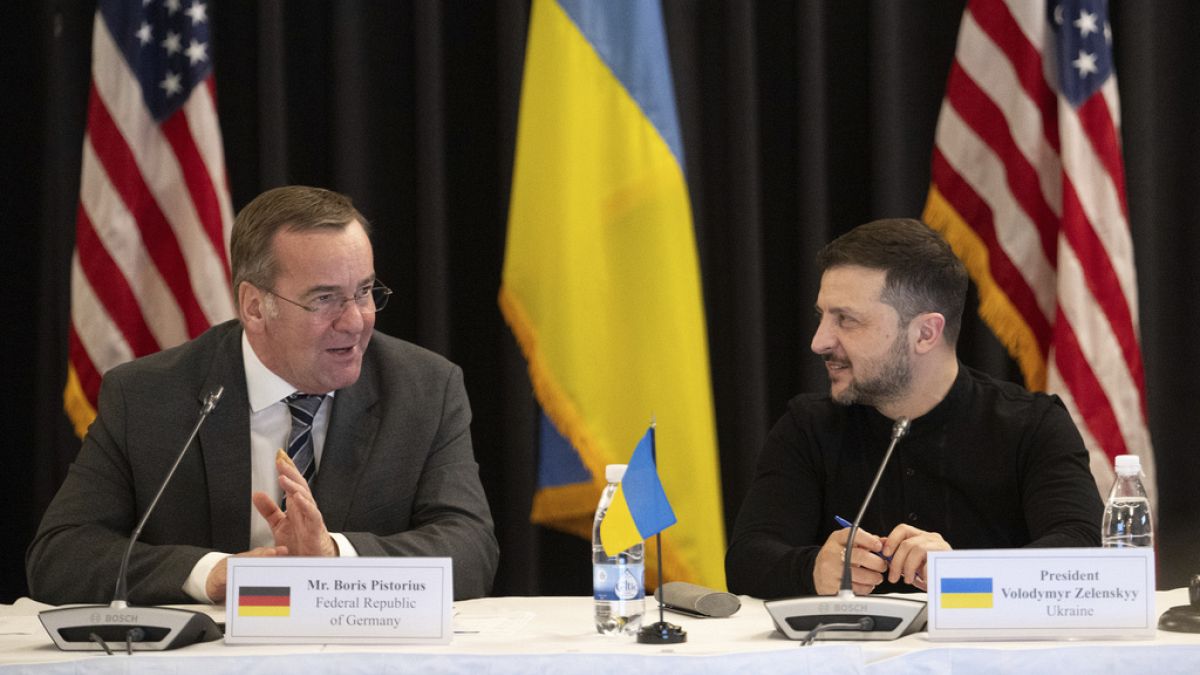Education
What the New, Low Test Scores for 13-Year-Olds Say About U.S. Education Now

What’s New
Like the results of recent tests of younger students, the math and reading performance of 13-year-olds in the United States has hit the lowest level in decades, according to test scores released today from the National Assessment of Educational Progress, the gold-standard federal exam.
The last time math performance was this low for 13-year-olds was in 1990. In reading, 2004.
Performance has fallen significantly since the 2019-2020 school year, when the coronavirus pandemic wrought havoc on the nation’s education system. But the downward trends reported today began years before the health crisis, raising questions about a decade of disappointing results for American students.
The federal standardized test, known as NAEP, was given last fall, and focused on basic skills. The 13-year-olds scored an average of 256 out of 500 in reading, and 271 out of 500 in math, down from average scores of 260 in reading and 280 in math three years ago.
Achievement declined across lines of race, class and geography. But in math, especially, vulnerable children — including Black, Native American and low-income students — experienced bigger drops.
Why It Matters: 13-year-olds missed a crucial time in their schooling.
A large body of research shows that most American children experienced academic struggles during the pandemic. It has also been clear that low-income students of color were most heavily affected by school closures and remote learning, which in some districts lasted more than a year.
The latest NAEP results are the federal government’s final major release of data on pandemic learning loss. The scores add to educators’ understanding of the challenges that lie ahead for children of different ages and demographic groups.
The 13-year-olds who took this version of the NAEP exam last fall were 10 years old — and in fourth or fifth grade — when the pandemic began. Many were old enough to participate in remote learning without minute-to-minute adult assistance, as younger children often needed.
But the ages of 10 to 13 are also a crucial period for mastering foundational skills, from multiplication to recognizing a character’s feelings in a short narrative passage.
“The bottom line — these results show that there are troubling gaps in the basic skills of these students,” said Peggy Carr, commissioner of the National Center for Education Statistics, which gives the NAEP exam. “This is a huge-scale challenge that faces the nation.”
Background: The test allows for comparisons across years.
In the highly decentralized American education system, NAEP is one of the few consistent tests given across states lines over many years, making the results easily comparable.
Scores on the exam do not result in any rewards or punishments for students, teachers or schools, making them especially useful for research purposes, since there are fewer incentives to cheat or teach to the test.
Still, some education experts believe there is too much focus on NAEP. They point out that the content of the exams, in many cases, has little overlap with the material that is actually taught in classrooms across the country.
What’s Next
A student survey given alongside the test turned up other interesting results that will keep educators buzzing. The percentage of 13-year-olds enrolled in algebra has declined to 24 percent from 34 percent in 2012. In some districts and states, notably California, there has been a push to equalize math education by placing fewer eighth graders into advanced math.
The percentage of 13-year-olds who reported reading for fun has also declined. Last fall, 31 percent said they “never or hardly ever” read for fun, compared to 22 percent in 2012.

Education
Four Fraternity Members Charged After a Pledge Is Set on Fire

Four fraternity members at San Diego State University are facing felony charges after a pledge was set on fire during a skit at a party last year, leaving him hospitalized for weeks with third-degree burns, prosecutors said Monday.
The fire happened on Feb. 17, 2024, when the Phi Kappa Psi fraternity held a large party at its house, despite being on probation, court documents show. While under probation, the fraternity was required to “demonstrate exemplary compliance with university policies,” according to the college’s guidelines.
Instead, prosecutors said, the fraternity members planned a skit during which a pledge would be set on fire.
After drinking alcohol in the presence of the fraternity president, Caden Cooper, 22, the three younger men — Christopher Serrano, 20, and Lars Larsen, 19, both pledges, and Lucas Cowling, 20 — then performed the skit, prosecutors said.
Mr. Larsen was set on fire and wounded, prosecutors said, forcing him to spend weeks in the hospital for treatment of third-degree burns covering 16 percent of his body, mostly on his legs.
The charges against Mr. Cooper, Mr. Cowling and Mr. Serrano include recklessly causing a fire with great bodily injury; conspiracy to commit an act injurious to the public; and violating the social host ordinance. If convicted of all the charges, they would face a sentence of probation up to seven years, two months in prison.
Mr. Larsen himself was charged. The San Diego County District Attorney’s office said that he, as well as Mr. Cooper and Mr. Cowling, also tried to lie to investigators in the case, deleted evidence on social media, and told other fraternity members to destroy evidence and not speak to anyone about what happened at the party.
All four men have pleaded not guilty.
Lawyers representing Mr. Cooper and Mr. Cowling did not immediately respond to messages requesting comment on Tuesday. Contact information for lawyers for Mr. Serrano and Mr. Larsen was not immediately available.
The four students were released on Monday, but the court ordered them not to participate in any fraternity parties, not to participate in any recruitment events for the fraternity, and to obey all laws, including those related to alcohol consumption.
The university said Tuesday that it would begin its own administrative investigation into the conduct of the students and the fraternity, now that the police investigation was complete.
After it confirmed the details, the dean of students office immediately put the Phi Kappa Psi chapter on interim suspension, which remains in effect, college officials confirmed on Tuesday.
Additional action was taken, but the office said it could not reveal specifics because of student privacy laws.
“The university prioritizes the health and safety of our campus community,” college officials said in a statement, “and has high expectations for how all members of the university community, including students, behave in the interest of individual and community safety and well-being.”
At least half a dozen fraternities at San Diego State University have been put on probation in the last two years, officials said.
Education
Video: Several Killed in Wisconsin School Shooting, Including Juvenile Suspect

new video loaded: Several Killed in Wisconsin School Shooting, Including Juvenile Suspect
transcript
transcript
Several Killed in Wisconsin School Shooting, Including Juvenile Suspect
The police responded to a shooting at a private Christian school in Madison, Wis., on Monday.
-
Around 10:57 a.m., our officers were responding to a call of an active shooter at the Abundant Life Christian School here in Madison. When officers arrived, they found multiple victims suffering from gunshot wounds. Officers located a juvenile who they believe was responsible for this deceased in the building. I’m feeling a little dismayed now, so close to Christmas. Every child, every person in that building is a victim and will be a victim forever. These types of trauma don’t just go away.
Recent episodes in Guns & Gun Violence
Education
Video: Biden Apologizes for U.S. Mistreatment of Native American Children

new video loaded: Biden Apologizes for U.S. Mistreatment of Native American Children
transcript
transcript
Biden Apologizes for U.S. Mistreatment of Native American Children
President Biden offered a formal apology on Friday on behalf of the U.S. government for the abuse of Native American children from the early 1800s to the late 1960s.
-
The Federal government has never, never formally apologized for what happened until today. I formally apologize. It’s long, long, long overdue. Quite frankly, there’s no excuse that this apology took 50 years to make. I know no apology can or will make up for what was lost during the darkness of the federal boarding school policy. But today, we’re finally moving forward into the light.
Recent episodes in Politics
-

 Business1 week ago
Business1 week agoThese are the top 7 issues facing the struggling restaurant industry in 2025
-

 Culture1 week ago
Culture1 week agoThe 25 worst losses in college football history, including Baylor’s 2024 entry at Colorado
-

 Sports1 week ago
Sports1 week agoThe top out-of-contract players available as free transfers: Kimmich, De Bruyne, Van Dijk…
-

 Politics7 days ago
Politics7 days agoNew Orleans attacker had 'remote detonator' for explosives in French Quarter, Biden says
-

 Politics6 days ago
Politics6 days agoCarter's judicial picks reshaped the federal bench across the country
-

 Politics5 days ago
Politics5 days agoWho Are the Recipients of the Presidential Medal of Freedom?
-

 Health4 days ago
Health4 days agoOzempic ‘microdosing’ is the new weight-loss trend: Should you try it?
-

 World1 week ago
World1 week agoIvory Coast says French troops to leave country after decades











